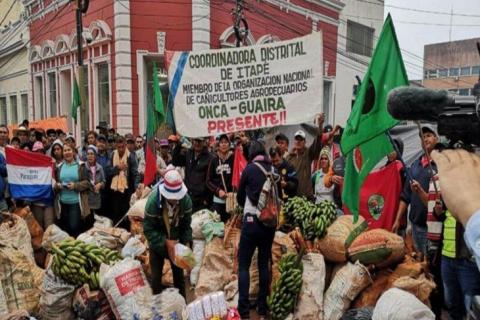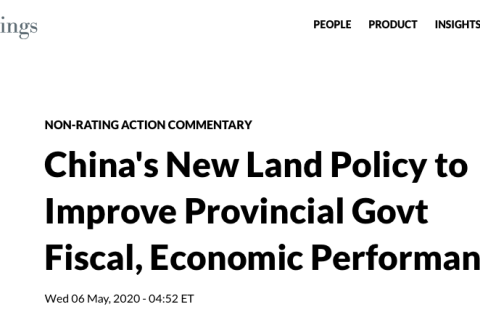New rule puts Indonesia’s protected forests up for grabs for agribusiness
- Indonesia’s environment ministry has issued a new regulation allowing protected forest areas to be cleared for a “food estate” program.
- The program is aimed at boosting domestic crop supplies, but critics say it prioritizes the interests of agribusiness at the expense of small farmers and the environment.
- Indonesia degazetted 26 million hectares (64 million acres) of its forest over the past 20 years, primarily for large-scale agriculture, and today has 29.7 million hectares (73.4 million acres) of protected forest, an area the size of Italy.
Communities need land rights to gain from investments
Communities being able to participate on an equal basis in land governance is key to food security and inclusive development. How can securing land rights pave the way for responsible investments and what can we learn from experiences with the palm oil industry? To answer these questions we turn to West Africa where two activists are fighting for their communities’ right to land. ‘If we want to move forward, we need to share the wealth that the land brings.’
Which version? Confusion over environmental fallout of Indonesia deregulation law
- A rule allowing subsistence farmers to burn small plots of land has been reinserted into the Job Creation Act passed last week.
- Other provisions affecting the plantation industry have also been adjusted in a new version of the law that appeared this week.
Multiple versions of a sweeping deregulation law passed in Indonesia last week contain substantial differences affecting the nation’s plantation sector, despite assurances from lawmakers that any changes to the text made in recent days were merely cosmetic in nature.
Africa: Key Insights Into Land Degradation From Seven Countries
Land is essential to our lives – we grow food on it and rely on it for economic growth and development. In sub-Saharan Africa approximately 83% of people depend directly on land for survival.
Science must back initiatives to restore Africa’s forests, say experts
A call for evidence-based approaches and community engagement to increase tree cover
This article was originally published by Landscape News.
La agricultura campesina perdió 166.347 ha. en los últimos años
Cocoa Nursery To Grow In Central
The Ministry of Agriculture and Livestock is looking at encouraging famers in the Central Province to grow cocoa in the province and boost the local economy.
With the increased demand for cocoa beans, Minister for Agriculture and Livestock, John Simon recently announced a proposed plan to establish a big nursery at Kuriva in Central province to allow local famers to get cocoa seedlings and plant cocoa on their land.
“There is a big potential here at Central Province which is already growing good cocoa beans here at Kuriva.
Both Angola and the Democratic Republic of the Congo Experiencing High Numbers of Agricultural Fires
Fires have spread across the majority of the landscape in Angola and the Democratic Republic of the Congo.
Fires of this number are not uncommon at this time of year in Africa. During the agricultural season of clearing field and planting new ones, farmers set fire to the remains of old crop fields to rid them of the leftover grasses and scrub.
Vietnamese rubber firm breaks pledge to World Bank, clears indigenous land in Cambodia
A Vietnamese agribusiness company in eastern Cambodia has illegally cleared old-growth forests, wetlands and spiritual sites on land that it pledged to return to indigenous communities. The land move reneges on promises the company, Hoang Anh Gia Lai, made in a mediation process with the World Bank.
New reports from eastern Cambodia say a Vietnamese rubber company has illegally cleared swaths of land in Ratanakiri province belonging to local indigenous communities, in violation of a World Bank-mediated agreement to return the land to local residents.
China's New Land Policy to Improve Provincial Govt Fiscal, Economic Performance
Fitch Ratings-Hong Kong-06 May 2020: China's new policy granting greater autonomy to provincial-level governments over land conversions and farmland acquisitions will assist fiscal and economic performance in the medium to long term, via increased governance efficiency of land management on the local level, Fitch Ratings says. Still, Fitch believes the reforms maintain the protection of farmland as a top priority, thus an aggressive conversion plan at the national level appears unlikely for environmental and agricultural reasons.
CLOSING SOON: Has GODAN influenced how you use and share open data?
The Institute of Development Studies is gathering short stories that capture the diverse experiences of those who have interacted with the Global Open Data for Agriculture and Nutrition Programme (GODAN) and GODAN Action.
If you’ve engaged with GODAN over the last few years – as a network member, a participant on one of their courses or events, or by engaging with their publications, tools and applications – this is your last chance to tell them your story.












